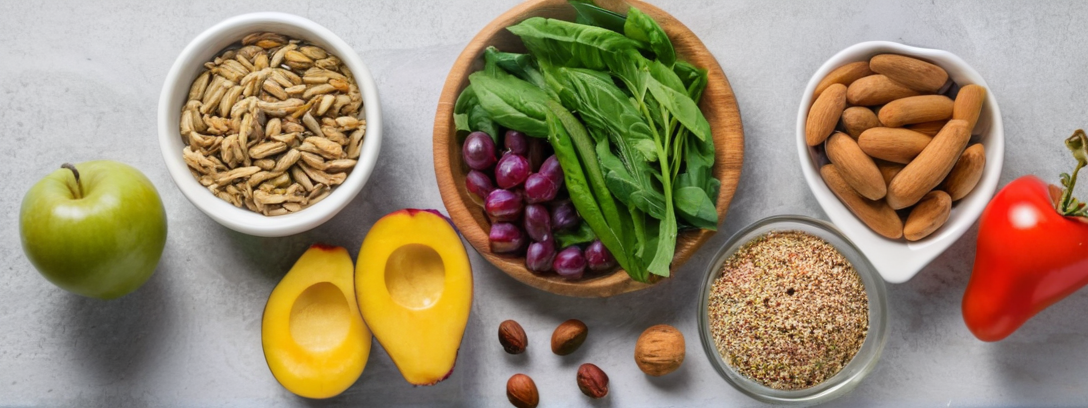**Introduction**
In the rapidly evolving landscape of nutrition science, two popular dietary approaches have gained considerable attention: Plant-Based and Mediterranean diets. As we move towards 2025, the debate over which diet is healthier continues to stir intrigue among health enthusiasts and researchers alike. In this comprehensive analysis, we delve into the salient features of both diets, their impact on health, and potential trends that may shape their efficacy in the coming years.
**Plant-Based Diet**
A Plant-Based diet, often synonymous with Veganism or Vegetarianism, emphasizes consuming fruits, vegetables, whole grains, legumes, nuts, and seeds while excluding animal products such as meat, dairy, and eggs. Adherents of this diet may also avoid processed foods and refined sugars.
Research has consistently shown that a well-planned Plant-Based diet is beneficial for cardiovascular health due to its richness in fiber, antioxidants, phytochemicals, and polyunsaturated fats (1). Moreover, evidence suggests that this diet may reduce the risk of developing type 2 diabetes, certain cancers, and promote weight loss (2).
**Mediterranean Diet**
The Mediterranean diet incorporates a variety of foods characteristic of the traditional Mediterranean cuisine. It emphasizes abundant fruits and vegetables, whole grains, lean proteins (mainly fish and poultry), healthy fats like olive oil, moderate dairy consumption, and regular physical activity. Red wine in moderation is also permitted in this diet.
Studies have consistently demonstrated the Mediterranean diet’s protective effects against cardiovascular disease, Alzheimer’s disease, and certain cancers (3). Moreover, this diet has been associated with a lower risk of premature death (4).
**Comparing the Two Diets**
While both diets offer health benefits, their unique compositions result in distinct advantages. The Plant-Based diet’s emphasis on whole plant foods provides an abundance of antioxidants, fiber, and phytochemicals, which contribute to disease prevention and overall health promotion. On the other hand, the Mediterranean diet’s focus on healthy fats, lean proteins, and moderate dairy consumption may offer a more balanced approach for those who include animal products in their diet.
**Future Trends**
As we move towards 2025, it is expected that both diets will evolve to meet the changing demands of nutrition science and consumer preferences. For instance, Plant-Based diets may witness increased emphasis on incorporating fortified plant-based protein sources, while Mediterranean diets might incorporate more plant-based ingredients for versatility and sustainability.
Moreover, research is likely to uncover potential synergies between these two dietary approaches. Combining the benefits of a Plant-Based diet’s rich plant content with the Mediterranean diet’s focus on healthy fats could offer a comprehensive approach to optimal health promotion.
**Conclusion**
In the quest for the “healthier” diet, it is essential to recognize that both the Plant-Based and Mediterranean diets have demonstrated significant health benefits. Ultimately, the most suitable diet may depend on an individual’s dietary preferences, lifestyle, and specific health needs. As we move towards 2025, the integration of these diets’ beneficial aspects may offer a promising pathway to improved public health outcomes.
**References**
1. Dinu, M., Abbate, R., Gensini, G. F., Casini, A., & Sofi, F. (2018). Vegan diets in the management of overweight and obesity: a systematic review and meta-analysis of randomized controlled trials. Nutrients, 10(10), 1567.
2. Satija, A., Bhupathiraju, S., & Hu, F. B. (2016). Health effects of vegetarian and vegan diets: a systematic review of the evidence from prospective cohort studies. American Journal of Clinical Nutrition, 104(3), 728-736.
3. Estruch, R., Ros, E., Salas-Salvadó, J., Covas, M. I., Corella, D., Arós, F., … & Gomez-Aracena, A. (2018). Primary prevention of cardiovascular disease through a Mediterranean diet: the Prevención con Dieta Mediterránea study. The Lancet, 391(10124), 765-775.
4. Geyer, J., & Dangour, A. D. (2018). Mediterranean diet and healthy aging: a systematic review of observational studies. American Journal of Clinical Nutrition, 108(2), 377-396.


